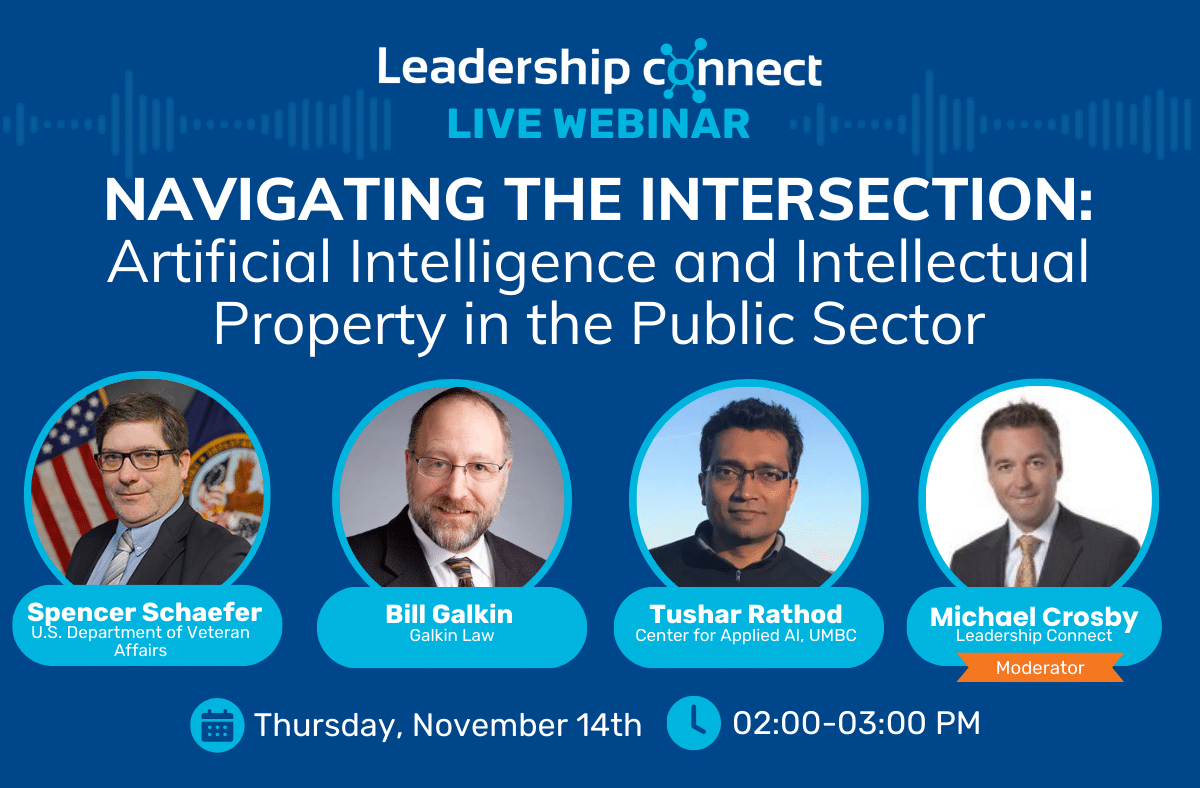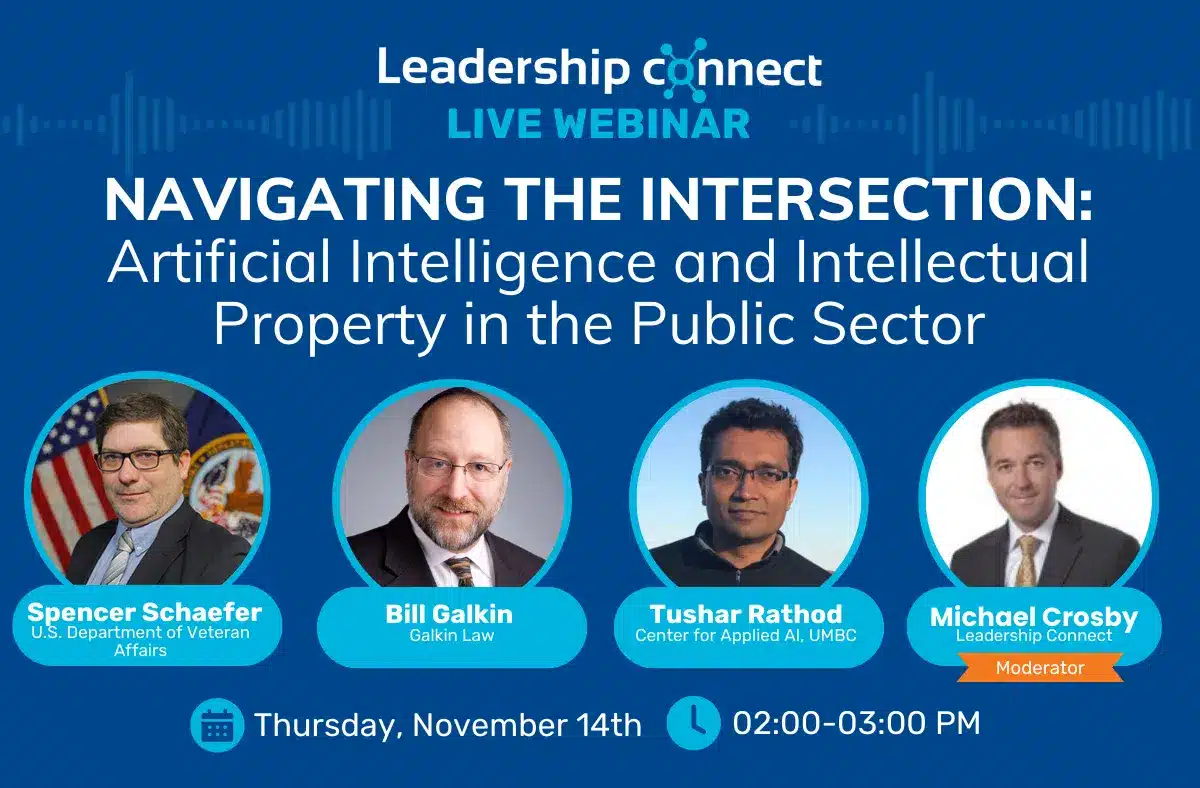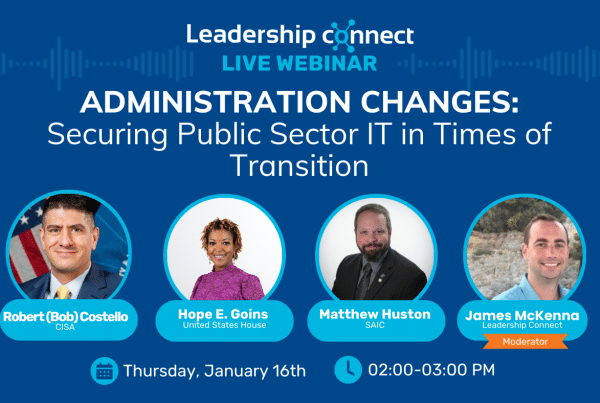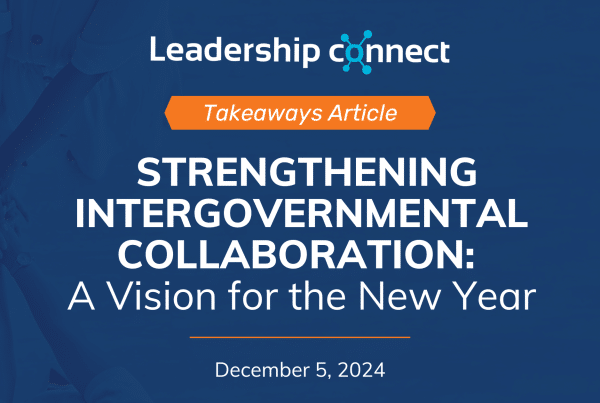On November 14, Leadership Connect hosted a webinar featuring three esteemed professionals to discuss the intersection of Artificial Intelligence (AI) and Intellectual Property (IP). Our panelists provided insights from each of their unique backgrounds to inform our audience of the hot topics surrounding AI and what implications the evolving landscape has for the public sector.

Missed the conversation? Watch the whole thing here and make sure you follow Leadership Connect’s Events Page to participate in our upcoming webinars.
Here are a few of the key topics the panelists covered and some best practices to help you navigate them:
IP and AI ownership
There’s an ongoing debate about whether innovation is human-driven or AI-generated. Determining the distinction between ideas, innovation, and standard patents is a challenging but vital aspect of incorporating AI and IP best practices in the public sector.
The panelists suggested that the best way to overcome this current hurdle is to prioritize proper documentation of human input when using AI for idea generation to establish clear ownership.
Transparency, fairness, and accountability
Transparency of AI use for both private and public data was a central theme to the webinar. The panelists advised our audience to not only keep the legal ramifications of AI in mind, but to also prioritize public trust. They recommended publishing data sources and creating vehicles for the public to comment on and interact with an agency’s AI decision-making. Building these feedback loops ensures that AI decisions are fair and are aligned with public interest by keeping internal biases in check.
Remember: Ethical obligations often outweigh legal obligations, especially around data collection and use. Keeping ethics at the forefront should help you design AI systems designed with fairness and accountability in mind, especially in high-stakes decision-making scenarios.
Managing risks with human oversight
As previously discussed, AI raises questions regarding ownership when AI contributes to individual idea-generations, but it also extends beyond that to the concept of AI in product development and to the general process of each agency.
The panelists suggested the “human in the loop” method for navigating new processes that incorporate significant AI use. The human-based review process and internal audits also speak to the accountability that the panelists urged our listeners to prioritize.
Data maintenance & compliance
A challenge with the growth of AI is the massive data sets that come with it. It’s now up to the agencies to clean up their existing data to get it AI-ready by labeling sources to create a strong framework and implementation process.
Specifically, our panelists suggested using synthetic data with vendors as an added step for privacy preservation.
When it comes to data, the panelists recommended following all regulatory measures for privacy while regularly implementing audits to the data handling processes.
Vendor considerations and ethical AI
Many agencies work with vendors daily. Given these close working relationships, you’ll have to take special care when selecting AI vendors by doing your due diligence to verify their claims through audits and testing.
Work with subject matter experts when it comes to partnering with vendors and conduct independent research to verify compliance.
Challenges and opportunities with AI integration
Regardless of the challenges and risks that AI poses, the panelists still advocated for its use as the risk for not adopting AI and falling behind is even greater. They zeroed in on the idea of continuous learning to stay competitive through constant testing, auditing, and experimentation with current systems.
The democratization of AI tools opens new opportunities for users, so working hard to capitalize on these opportunities while functioning in a secure and ethical way can have extremely positive impacts on federal agencies.






